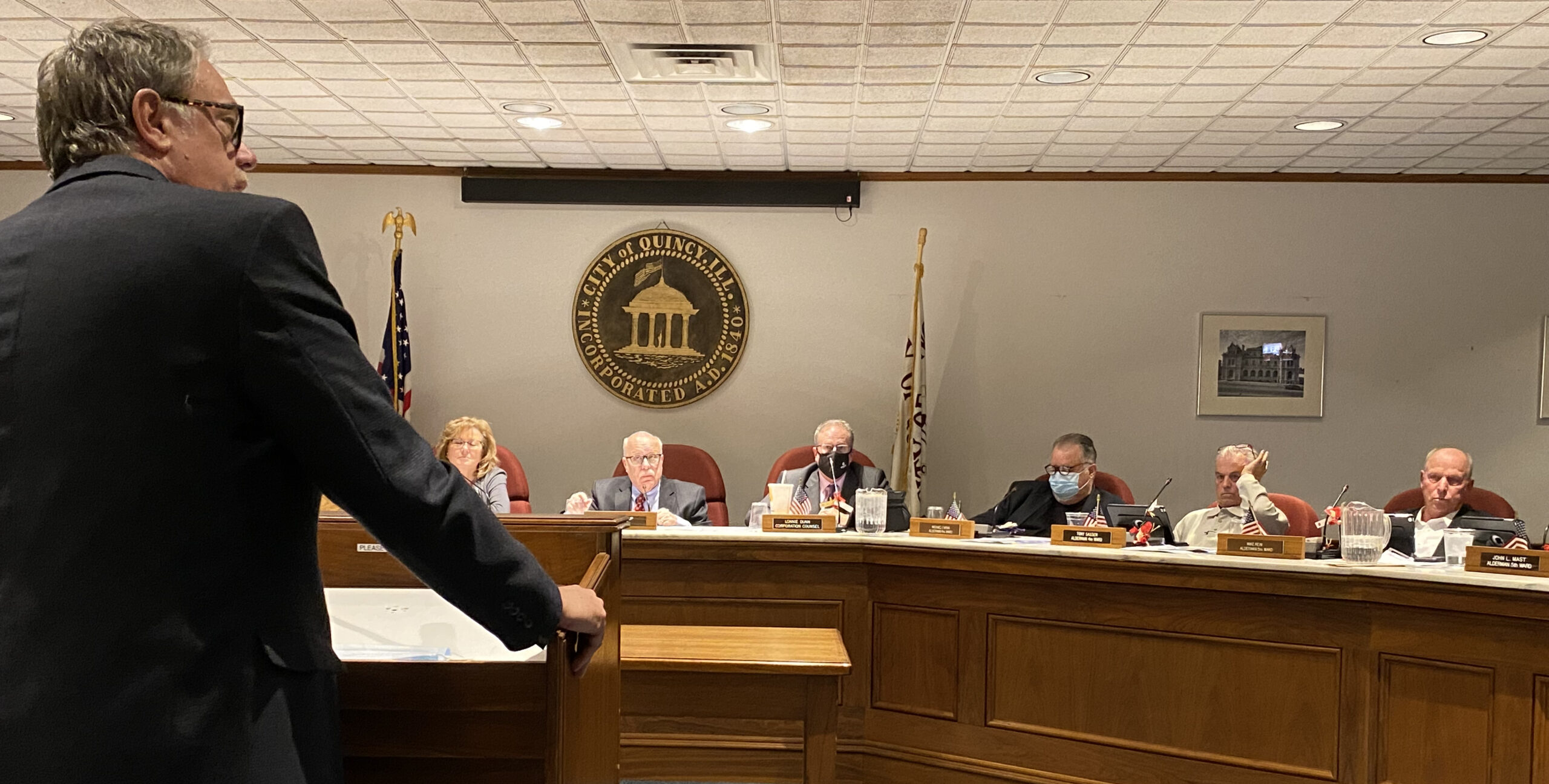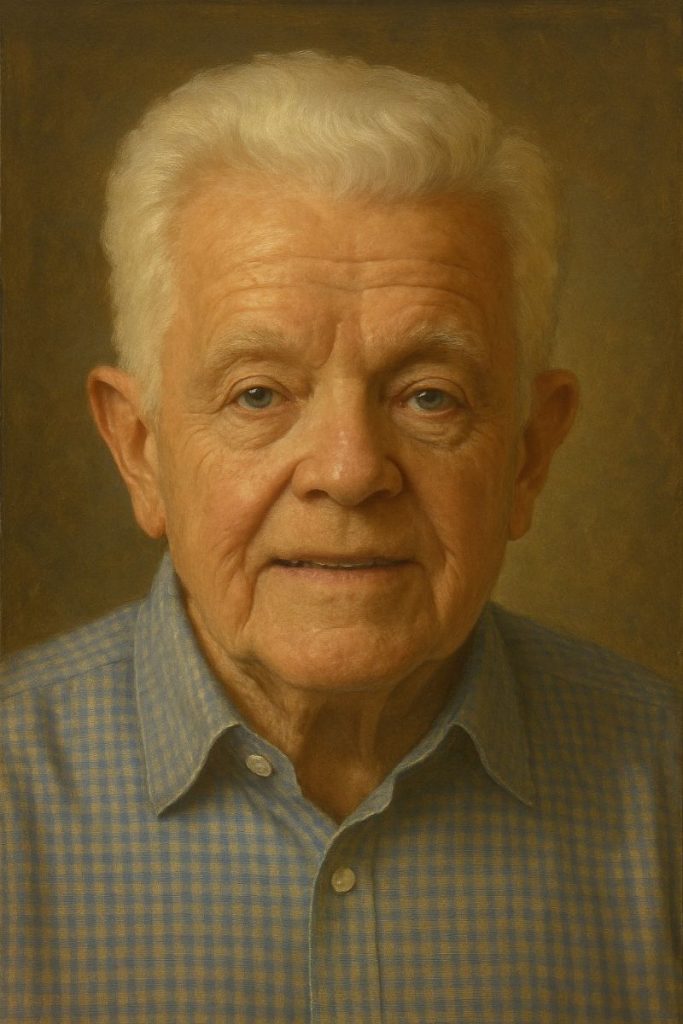Troup ‘quite pleased’ with changes to municipal code for video gaming licenses

QUINCY — The Quincy City Council approved an ordinance amending the city’s municipal code for video gaming licenses, bringing them more in line with the Illinois Liquor Control Statute.
Aldermen approved one small change before voting on the ordinance Monday night, increasing the fee for an individual video gaming terminal to $200 from $100. The operator and owner of each VGT will absorb half the cost.
Matt Boudreau, owner of Wine on Broadway, 2802 Broadway, spoke at the Nov. 15 meeting and asked aldermen to consider raising the VGT fee on each terminal to $1,000. He noted the VGT fee on each terminal is $500 in Decatur and $250 in Springfield.
“I’m not for more taxes, but if you raise (the individual VGT fee), I can get that cost split from my supplier,” he said on Nov. 15.
The amended ordinance passed unanimously.
Bauer votes no, Farha votes ‘present’
The ordinance clarifies the definition of a restaurant and a bar. A bar is an establishment that generates more than 50 percent of its gross revenue from the sale of alcohol. A restaurant generates more than 50 percent of its gross revenue from the sale of food. A bar must apply for an A-1 gaming license and a restaurant must apply for an A-2 gaming license. Each A license costs $700 annually.
If 50 percent or more of an establishment’s revenues are from gaming, an I license is needed. I-1 license holders must pay $10,000 annually, and they now can have six video gaming terminals, the state maximum, instead of five. The I-2 license holders must pay $2,500 annually and their limit of video gaming terminals increases from three to four.
The I-1 license is only available for establishments that had a Quincy liquor license before Nov. 30, 2021.
The ordinance passed with 11 yes votes. Parker Freiburg, R-3, recused himself from the vote. Dave Bauer, D-2, voted no and Mike Farha, R-4, voted present.
One of the first issues tackled by Mayor Mike Troup when he took office in May was addressing the municipal code regarding liquor licenses
“The best thing was having meetings with the current licensees,” Troup said. “Getting their input was helpful. Bruce Alford (assistant corporation counsel for the city) did a good job, making sure we’re compliant with the state liquor licensing laws. We know we’re in good shape with that. Overall, I’m quite pleased with how things turned out.”
Move to special service area created fair playing field in The District: Guthrie
Aldermen also voted to adopt an amended ordinance to the traffic code dealing with motorized bicycles, which have “become pretty prominent around town,” Deputy Police Chief Adam Yates said at the Nov. 15 meeting. He said the Illinois Vehicle Code specifically outlines gas-powered bicycles as not being motor vehicles. The muffler ordinance was only written for motor vehicles. The amended ordinance makes the motorized bicycles susceptible to the muffler ordinance.
Aldermen also heard the second presentation of an ordinance to levy taxes for the Historic Quincy Business District. Mike Rein, R-5, asked if The District, as it is now known, would ever consider becoming a membership organization rather than be dependent on taxation.
Bruce Guthrie, former executive director for The District, explained the implementation of a special service area, in which property owners would taxed, was created five years ago. The District then was taken out of the city’s general fund.
“It was not really a fair, level playing field for everybody. The property owner here could be paying (membership dues) while another property owner was not,” Guthrie said.
Uzelac: The District is doing more with less
Jeff Bergman, R-2, asked how The District contacted property owners to inform them how the SSA tax was used.
“We encourage everyone who lives in this area to contact us … so we can have your information updated,” said Guthrie, who left The District last month to become the president and CEO of the Quincy Area Chamber of Commerce. “Second, we have done a lot, especially during the pandemic, to do a great job of communicating to everyone about all the opportunities from grants to various advice. We just work hard with the state on a back-to-business grant. We work very hard to help communicate that to the district.”
Guthrie said 20 new businesses were created this year within The District’s 92 blocks.
Ben Uzelac, D-7, said he has talked with other cities that are part of the Main Street America network that are a third of the size of The District and have budgets 10 times larger.
“(The District is) doing more with less,” Uzelac told Guthrie. “Personally, I just want to say thank you for everything you’ve done. You run a tight ship and put on some great events and lobby for business and property owners with such a small budget.”
In other action, aldermen:
- Tabled for a week a request from the Salvation Army to have an Angel Tree Parade down Broadway on Dec. 11.
- Divided one lot into two for the former ShopKo property at 3200 Broadway.
- Approved an amendment to a special permit for a planned development that allowed for the construction of additional living units at the former Dewey School, 2040 Cherry.
- Approved spending $8,142 with RKBA, LLC, to use of its facility for firearms training for the Quincy Police Department.
Miss Clipping Out Stories to Save for Later?
Click the Purchase Story button below to order a print of this story. We will print it for you on matte photo paper to keep forever.

